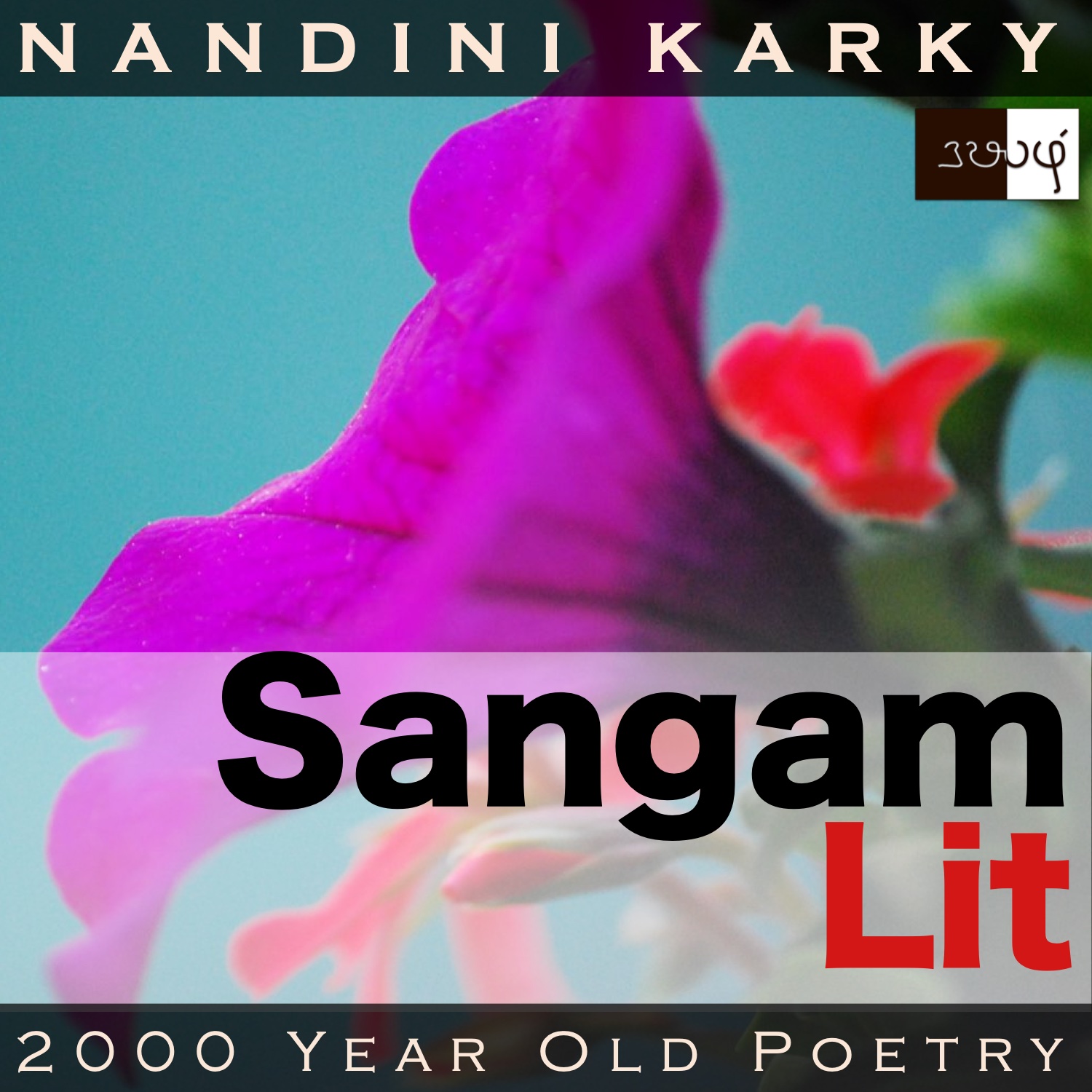Podcast: Play in new window | Download
Subscribe: Apple Podcasts | Spotify | Amazon Music | Android | iHeartRadio | TuneIn | RSS | More

In this episode, we relish the magical feelings evoked by a dream, as depicted in Sangam Literary work, Kurunthogai 147, penned by Koperunchozhan. The verse is situated in the drylands of ‘Paalai’ and speaks in the voice of the man to a dream, conveying his bittersweet emotions, as he remains parted away from the lady.
வேனிற் பாதிரிக் கூன் மலர் அன்ன
மயிர் ஏர்பு ஒழுகிய அம் கலுழ் மாமை,
நுண் பூண், மடந்தையைத் தந்தோய் போல,
இன் துயில் எடுப்புதி-கனவே!-
எள்ளார் அம்ம, துணைப் பிரிந்தோரே.
‘Woken up from sleep’ is the tiny core of this one! In the opening words ‘வேனிற் பாதிரிக் கூன் மலர்’ meaning ‘the curved padri flower that blooms in spring’, the verse conjures a trumpet-shaped flower, whose current common name of ‘fragrant padri tree’ seems to arise from its ancient Tamil name. The phrase ‘அம் கலுழ் மாமை’ meaning ‘beauty brimming dark skin’ yet again celebrates the dusky complexion of Sangam women. The art of making jewellery with detailed designs can be sensed in ‘நுண் பூண்’ meaning ‘intricately carved jewels’. ‘இன் துயில் எடுப்புதி கனவே’ talks about that universally experienced phenomenon of ‘a dream that wakes one from sleep’. Ending with the words ‘எள்ளார் அம்ம, துணைப் பிரிந்தோரே’ meaning ‘they will scold not – those who are separated from their loved ones’, the verse evokes our empathy.
Talking in a dream, we know for sure, but here is a man, talking to a dream, as if it were an entity outside of him! The context reveals that the man and lady were leading a happy married life when the man had to part away from her to gather wealth. One morning, waking up suddenly, the man says, “Akin to the curved flowers of the ‘padri’ that blooms in spring, are her tresses that crown her dark skin, brimming with beauty. As if you have brought before me that innocent maiden, bedecked with intricately made jewels, you woke me up from my pleasant sleep, O dream. And yet, you will not be admonished by those who are separated from their beloved!” With these words, the man tells the dream that woke him up that although the lady was not right next to him, it was a comfort to have seen her in the mists of his sleep.
Time to explore the nuances in this verse. The man starts by talking about a spring flower, a bent padri, and he equates a bunch of these flowers coating a tree top to the tresses that crown the glowing dark skin of the lady. He further describes his beloved as someone wearing exquisite jewels. Jewellery seems to have been a high priority for Sangam women! Could this ancient attraction for fine jewels be the deeply situated reason for the value that South Indians seem to accord to buying gold jewellery, as can be witnessed by the higher rate of gold expenditure in the states of Kerala and Tamilnadu, when compared to the other northern states of India. Returning to the verse, the man has been describing his lady only to say that his dream had deluded him into thinking that she was right next to him, and thus, woke him up from his sleep. Even though, the lady vanished when those eyes opened, he asks with a smile to that dream, ‘How I can scold you for waking me up, when I’m so far away from my lady?’
Even a vanishing dream that brings a glimpse of a beloved is welcome, says the man’s heart. When journeying far and parted away from the one you love, it’s so difficult to sleep and even those sparse hours of rest have been rocked by the dream of his beloved, and yet, there was no anger towards the dream, the man declares. The verse dwells on this fascinating everyday experience in human lives – that of dreams. As literature across the ages attest, this is a universal and timeless phenomenon that holds us captive, not only when we experience it but after we wake up and wonder about it. It’s not just the muse of artists but scientists too want to unravel its secrets. Why, there is even a dedicated, scientific field for the study of dreams called as ‘Oneirology’! I have often wondered if dreams are the pathways to parallel universes, and no doubt, like this, all of us, entertain our own pet theories about dreams. But, the beauty of it is that, not minding our attempts to make sense of this mystic activity, it keeps happening day after day, healing us and pointing us the way to a better tomorrow, or that’s what I’d like to think, like the man in this verse, who thanks his dream for bringing his faraway beloved closer, even though it was for a fleeting while!




Share your thoughts...